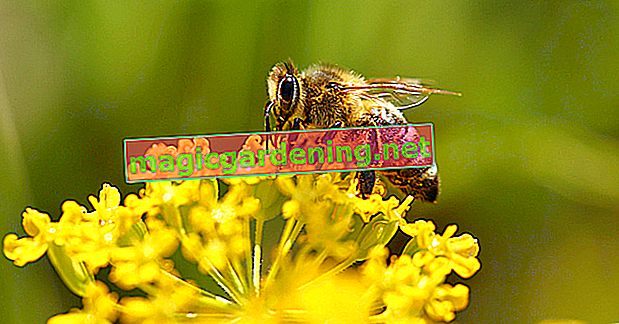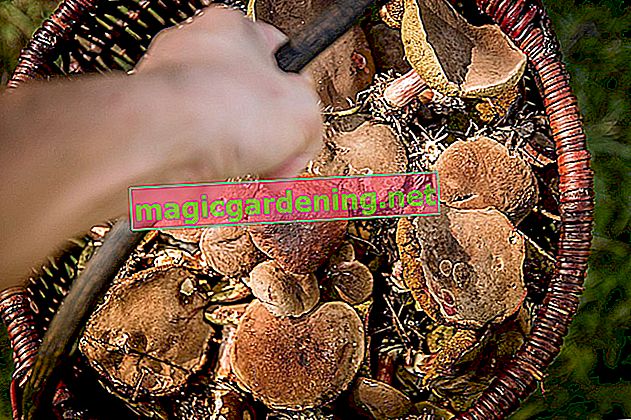
What is a bee, what is a wasp?
The differentiation between bees and wasps is not quite as banal as one might think. They are not two clearly separated genera within a particular insect family. Bees, on the other hand, are more of a kind of split off from the large group of insects, the wasps - they evidently developed by chance from the group of digger wasps. In any case, bees as well as all wasp species are classified in the order of hymenoptera and belong to the subordination of waist wasps.
also read
- The difference between wasps and bees
- Do wasps also pollinate flowers?
- How basil helps against wasps
But what exactly makes the bees among the wasps so special? Here are the main differences:
- Appearance: Bees do not have a typical wasp waist, they are hairier
- Bees (including the larvae) have a purely vegetarian diet
- Bees produce honey
- Bees can only sting once in a lifetime
War and peace between wasps and bees
In nature, every species of animal has to watch how it survives. There is no room here for emotional friendships - at most for lucrative business relationships in which one benefits from the other in the sense of a win-win situation. Otherwise, everyone would do well to view other species with a self-sustaining skepticism.
Attacking and sometimes cruel defensive behaviors have also been observed between some wasp and bee species. As vegetarians, bees are mostly the victims of the carnivorous wasps. Bees are by no means helpless - wasps may have a strong offensive character, but bees are well on the defensive.
Some hornet species (which belong to the wasps) are honey robbers and penetrate bee nests to plunder. As a defense strategy, the bees have developed a method of encirclement that suffocates the hornet.
Especially for hornets, the largest wasp species living in Central Europe, bees are sometimes on the menu themselves. As insect hunters, they generally also eat related hymenoptera. This does not pose a threat to the population of bee colonies, however, because bees are too defensive to make up an essential part of their prey. 90% of the meat diet of hornets is still species of flies.








